Роберт Бюттнер - Orphan's Journey
Здесь есть возможность читать онлайн «Роберт Бюттнер - Orphan's Journey» весь текст электронной книги совершенно бесплатно (целиком полную версию без сокращений). В некоторых случаях можно слушать аудио, скачать через торрент в формате fb2 и присутствует краткое содержание. Жанр: Боевая фантастика, на английском языке. Описание произведения, (предисловие) а так же отзывы посетителей доступны на портале библиотеки ЛибКат.
- Название:Orphan's Journey
- Автор:
- Жанр:
- Год:неизвестен
- ISBN:нет данных
- Рейтинг книги:3 / 5. Голосов: 1
-
Избранное:Добавить в избранное
- Отзывы:
-
Ваша оценка:
- 60
- 1
- 2
- 3
- 4
- 5
Orphan's Journey: краткое содержание, описание и аннотация
Предлагаем к чтению аннотацию, описание, краткое содержание или предисловие (зависит от того, что написал сам автор книги «Orphan's Journey»). Если вы не нашли необходимую информацию о книге — напишите в комментариях, мы постараемся отыскать её.
Orphan's Journey — читать онлайн бесплатно полную книгу (весь текст) целиком
Ниже представлен текст книги, разбитый по страницам. Система сохранения места последней прочитанной страницы, позволяет с удобством читать онлайн бесплатно книгу «Orphan's Journey», без необходимости каждый раз заново искать на чём Вы остановились. Поставьте закладку, и сможете в любой момент перейти на страницу, на которой закончили чтение.
Интервал:
Закладка:
Howard shrugged. “I dunno. It’s my first time. We might get squished anyway.”
Ten minutes later, I lay flat on the deckplates, my body’s hollows shored up by air bubbled into petroleum-based plastic. Nothing shored up my confidence. Howard and Ord lay alongside me, and above us Jude lay in the toadstool couch.
The stars were all gone, now. Their light was being sucked parallel to us, into a cosmic garbage disposal that whirled us closer every second.
The Firewitch, massive as it was, shuddered.
I gasped; it felt like the bar had dropped on my chest during bench presses. Howard cautioned that the slightest movement risked serious injury and told us to stay as motionless as possible during the transit.
That was like putting up a “Wet paint — Don’t touch!” sign, for me anyway. Naturally, I tried to lift my little finger. It was just an organic prosthetic that dated back to a wound during the Slug Armada days, and it dislocated.
I’ve never been an orange, so I don’t know what it feels like to get juiced. But now I have a pretty good idea.
I think I felt the ship juke a time or two, but that could have just been one of my joints popping.
According to Howard, at this point, the ship’s Cavorite was pushing back against the gravity of the densest mass in this universe. One of the four basic forces of this universe was battling dead-even with our power plant, something that tumbled in here from a universe next door, across the eleventh dimension.
I sweated. Or maybe water was just being squeezed out of my tissues. Howard predicted that the transit would be “elegantly simple.” Maybe when a Slug crew flew this ship off the showroom floor, that would have been true. But Jude was our only crew, and he didn’t even have his learner’s permit. And Howard’s Spooks had been tampering with the Firewitch for years. What if they had broken something?
If — if — everything worked, the ship would retain just enough angular momentum to slide around the core mass with sufficient oomph to pop out in what Howard called “new space.”
“New space” was apparently not the same as breathing space, because, much as my chest tried to expand, I took no air in.
Howard never said whether gravity would get so strong that light sponging would blind us.
So when everything went black, I didn’t know whether I was blind — or just suffocated.
EIGHTEEN
WE TOTED UP THE DAMAGE NEXT DAY. The net cost to us of transiting a temporal fabric insertion point, as Howard called it, was one dislocated finger (mine), intermittent blood passed in urine (Howard and Ord), and thirty Fakon, lettuce, and tomato braninis squished when a lunch cart tray buckled.
Plus everybody, even Jude, popped enough eyeball blood vessels that we could have passed for ten-day drunks.
Sometime during the first post-transit day, the stars returned. Well, not the stars. Some stars.
Two days after the transit, Howard calculated that we had resumed cruising speed of a hundred twenty thousand miles per second. We didn’t know where we were going, but we were making great time. He stood in the bow, stargazing, bloodshot eyes aglow. “Fabulous.”
“How is nearly killing five thousand people and press-ganging us onto this Flying Dutchman fabulous?”
Before us, a band of stars swept like spilled diamonds. Howard said, “I’m not even sure this is the Milky Way, Jason! No man ever dreamed of seeing this!”
Howard had had no luck turning the ship around before we shot through the hole in space. Now, even if we turned around, there was no certainty we could find the hole again, retransit safely, or come out where we originally went in. “Howard, why do I care what stars I’m looking at when I finally starve?”
He said, “That’s the downside.” He touched the screen wired to Jeeb, looked at it, then raised his eyebrows. “Holy moly!”
I had given up trying to teach Howard to swear like a proper grunt. “What is it?”
Howard pointed dead ahead. A star among millions seemed brighter than the others, yellowish, and swelling bigger each second. He fingered the screen to display the position of his marker stars from the prior sampling compared to current. He said, “Don’t worry about starving.”
“Why not?”
“I still don’t know where we’re going, but we’re slowing down. We’ll be there before lunch tomorrow.”
NINETEEN
HOWARD WAS WRONG. We sped through the orbits of the outer planets of the big yellow star’s system. Then we trailed along behind the fourth planet out from our new sun, following in its orbit. Not just before lunch, but before Ord even finished his morning coffee.
From space, the planet looked Earthlike, blue with white cloud wisps and polar caps and brown landmasses. As we closed in, we saw that the largest continent was actually one, a landmass connected by a narrow isthmus, like North and South America rotated from North-South to East-West, to lie along the equator like a dumbbell.
One crater-pocked moon orbited the planet’s equatorial belt line, in the plane of the ecliptic. If you think of the planets that orbit a sun as spinning like tops while circling the sun like meatballs around a tray, that tray is the plane of the ecliptic. All the planets and moons of the Solar System we had left behind spun in the plane of the ecliptic. According to Howard, most stars and their systems were arranged the same way.
The planet’s other moon was smaller, the bright red of arterial blood, and marble-smooth. Stranger still, it orbited slowly, north to south, over the poles. As Howard would say, its orbit was perpendicular to the plane of the ecliptic.
Howard and I stood side by side on the toadstool’s platform in the bow, watching the scene come closer. I had my Eternad helmet on, so I could use the optics like binoculars. I narrowed my eyes. “We hit an Earth clone on the button. How convenient.”
Howard shook his head. “Of course it’s convenient. The Firewitch homed on this planet. The Pseudocephalopod would establish itself where it found worlds temperate enough to support life.”
“But we know the Slugs can just make a rock Earthlike. They were terraforming Ganymede.”
Howard looked away, at a rounded corner of the control chamber. “True. But why terraform if you find an Earthlike planet sitting right in front of you?”
I cocked my head. “But the Slugs did sit out on Ganymede when they found Earth. They bombed us from a distance, like a caveman would beat a rattlesnake with a long stick.”
Howard kept looking away. His Spook “need to know” paranoia was his least-endearing characteristic. “Rattlesnakes are dangerous, if you get too close.”
I narrowed my eyes. “But, Howard, the first time a caveman came across a rattlesnake, he wouldn’t have known it was dangerous. So the analogy doesn’t hold, does it?”
Beyond the transparent bow, we sped on above the ocean, but the inside of the Firewitch felt as still as houses.
Before Howard could answer me, the Firewitch dipped into the planet’s uppermost ionosphere, and red flames of incandescent plasma blossomed from the leading edges of the ship’s forward arms.
Howard pointed at the planet below. “If this were the Pseudocephalopod homeworld, we would have been challenged by now. This ship is going to land in an outpost of some kind.”
“Even if it’s just an outpost, a hundred thousand warriors will storm the ship and kill us,” I said.
Jude frowned up at me. He had clamped in to the pilot’s couch as soon as we reentered the traffic jam of interplanetary space.
Howard and I stood alongside Jude.
I asked Howard, “How much have we slowed?”
Howard rubbed his chin. “I’d guess we’re down to ten thousand miles per hour.”
Читать дальшеИнтервал:
Закладка:
Похожие книги на «Orphan's Journey»
Представляем Вашему вниманию похожие книги на «Orphan's Journey» списком для выбора. Мы отобрали схожую по названию и смыслу литературу в надежде предоставить читателям больше вариантов отыскать новые, интересные, ещё непрочитанные произведения.
Обсуждение, отзывы о книге «Orphan's Journey» и просто собственные мнения читателей. Оставьте ваши комментарии, напишите, что Вы думаете о произведении, его смысле или главных героях. Укажите что конкретно понравилось, а что нет, и почему Вы так считаете.

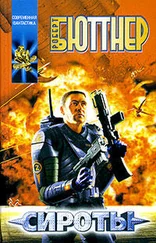

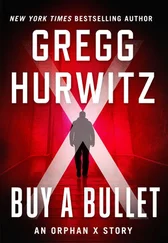
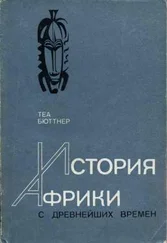

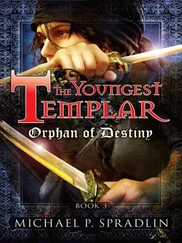
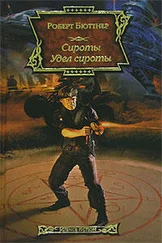
![Дэн Бюттнер - Где живет счастье [Правила жизни самых счастливых людей планеты] [litres]](/books/395574/den-byuttner-gde-zhivet-schaste-pravila-zhizni-samyh-thumb.webp)


